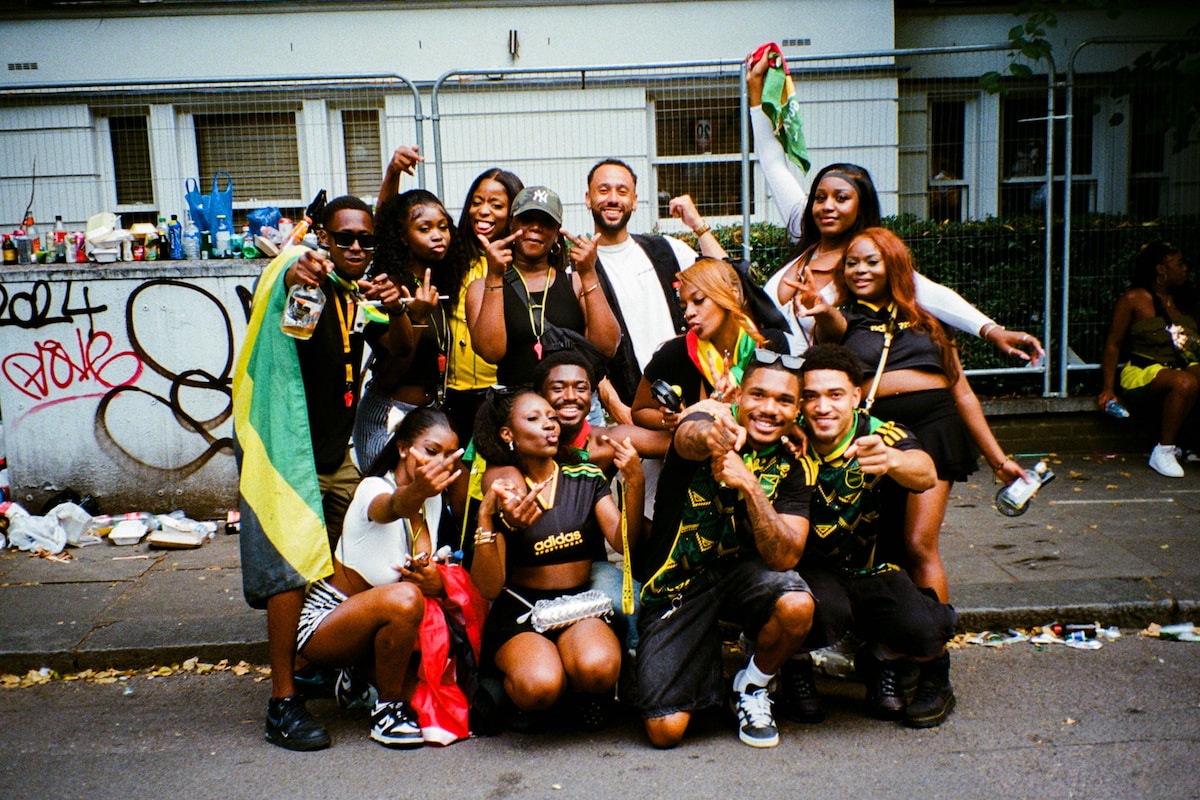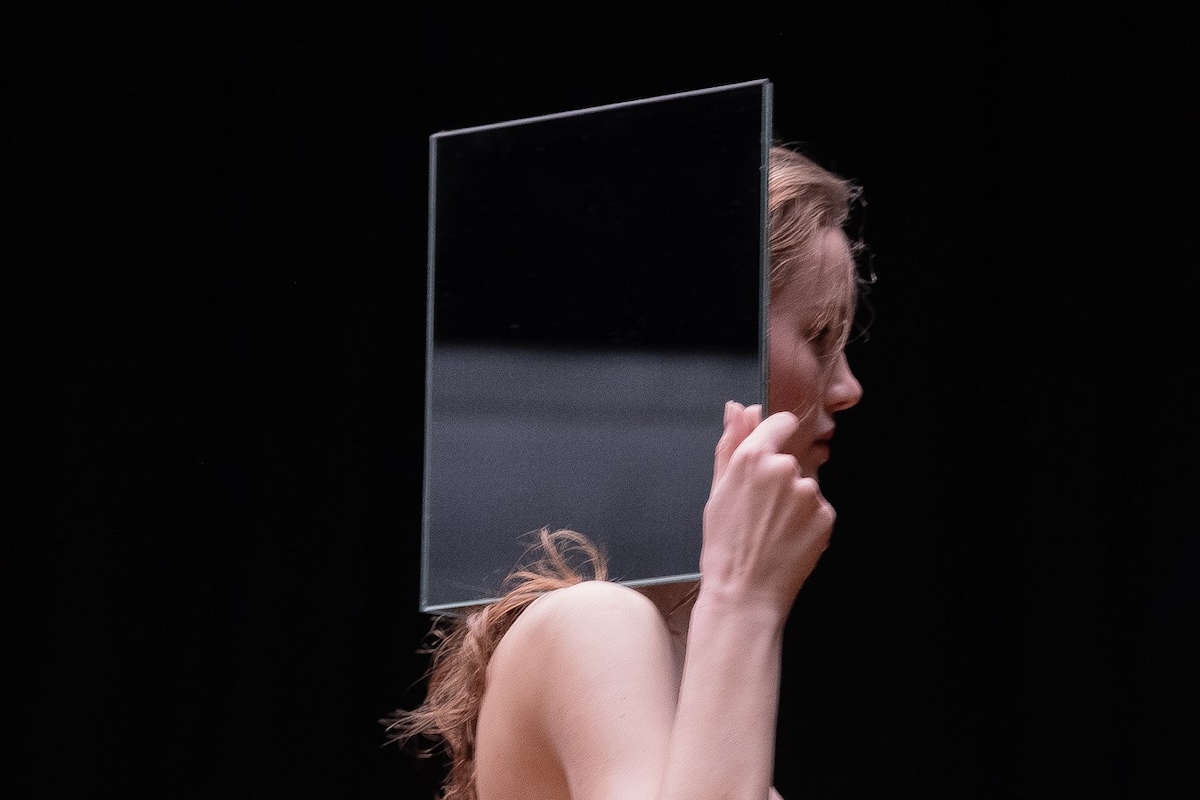Notting Hill Carnival 2024 street style28 Images
This weekend, over two million partygoers will descend on Europe’s wealthiest neighbourhood. Soundsystems will park on every street corner, parade floats will coat the roads with paint and confetti, and revellers will dance to the sounds of the Caribbean and its diaspora – from soca, reggae and dancehall through to hip-hop and grime. The event, of course, is Notting Hill Carnival, and it is now one the largest street parties in the world.
Notting Hill Carnival is firmly rooted in the experiences of London’s Caribbean communities, many of whom arrived in the Windrush migrations between 1948 and 1973, and settled in the then-undesirable Notting Hill neighbourhood. Its first iteration took place in 1959 in Camden’s St. Pancras Hall, organised by Trinidadian journalist Claudia Jones in response to the racist murder of Antiguan carpenter Kelso Cochrane earlier that year. Seven years later, it was revived in the streets of Notting Hill, becoming the celebration it is today.
“We know the history, Carnival didn’t start from a good note, but it’s become good,” says Jamaican soundsystem veteran Gladdy Wax, who arrived in the UK in 1965. “People were killed in race riots in Notting Hill, and that’s what led some people to think, ‘Let’s beat the drums and enjoy ourselves with a steel band’. It’s a happy occasion to be more cohesive and enjoy our society together.”
These community foundations survive today. While normally a notoriously noisy affair, for two minutes each year, soundsystems across the neighbourhood silence their speakers in memory of the 72 people who died in the Grenfell Tower fire in 2017. For many, this tragic incident manifested the changes that Notting Hill has undergone over the 20th century. Once one of the few London neighbourhoods affordable to Caribbean migrants, the area has since become a hotspot of gentrification, with rising house prices pushing many longstanding residents out into the surrounding boroughs.
Still, despite its rich social history, Notting Hill Carnival has increasingly come under scrutiny by the Metropolitan Police and local MPs for its supposed association with violent crime. Tragically, stabbings frequently occur over the Carnival weekend and, each year, over 11,000 police officers are deployed at the event. This year, after multiple warnings of apparent underfunding and the risk of overcrowding, the Met unveiled controversial plans to implement facial recognition technology over the weekend for the first time.
Conservative General London Assembly leader Susan Hall has also called for the event to be taken over by City Hall and moved into Hyde Park to alleviate its impact on the local area. In response, London Mayor Sadiq Khan and Notting Hill Carnival organisers insisted that the event should continue to remain in the hands of the city’s Caribbean communities.
So, why does Notting Hill Carnival deserve to be preserved? Is it truly in “jeopardy”, as Carnival chair Ian Comfort recently announced? Is this focus on violent crime warranted? Below, we speak to five longstanding participants to hear their views on the matter.

Gladdy Wax is a Jamaican DJ who arrived in the UK in 1965 and has been hosting a soundsystem at Notting Hill Carnival for the past 35 years.
Gladdy Wax: It’s a very happy occasion for me to see so many people enjoy Carnival. I’ve never had a bad year. But to me, especially in the last 15 years, this kind of Carnival bashing has grown more and more in the media. Everything that happens at Carnival is what happens in society daily: young men kicking off in the street, thugs having a go at police because of how they might or might not treat them. What happens at Carnival is that a couple of million people are chucked into a small area in West London, so it highlights society.
I don’t think individual policemen are against carnival. I think they go around, they see the culture, the mixture, the music, the dancing, the food. I think they love it just as much as normal human beings. Really, it’s in everyone’s interest – young and old, men and women, girls and boys – to make it an enjoyable, trouble-free and law-abiding Carnival, because we all live here. We’re all from the same society. They can put it in ten Hyde Parks, but it wouldn’t be Carnival.

Genesis Mas Band was founded in 1980 by Allyson Williams, MBE, an award-winning writer, Windrush migrant, retired NHS hospital manager, and wife of a founding member of Notting Hill Carnival. Genesis Mas Band is survived by Allyson’s daughter, Symone Williams, MBE, the band’s principal costume designer and relationship manager at Arts Council England.
Allyson and Symone: From an artistic perspective, Carnival is special when you can interpret other people’s culture through your costumes, when your costumes can tell stories that are recognised by the culture you are portraying. This happened when we played ‘East Meets West’ in the year 2000, and we had Japanese students working with us, who wrote the phrase ‘Peace and Love’ in Japanese on the back of a costume.
We are eternal optimists, and we think the future of Carnival is very bright. The strategic partners’ review this year highlighted the main issue with Carnival is that it is grossly underfunded. Now that the whole world also knows, we’re excited to attract corporate sponsors who are equally as passionate about the Carnival arts. We believe that this major impactful event that generates £400 million for London’s economy deserves respect and support for the talented, committed and passionate artists who work long and hard to keep the traditions and legacy of their ancestors alive and uphold this major aspect of our Black history.

Hasan De Four is a Caribbean food ambassador who was born in Trinidad and Tobago and has been attending Notting Hill Carnival for the last 30 years. He has participated as a masquerader, mas band organiser and caterer, and this year he will be providing catering for the parade’s Judging Zone, among other activities.
Hasan De Four: “Notting Hill Carnival is a showcase of a true melting pot of cultures. I remember visiting my granddad’s home in Ladbroke Grove over the Carnival weekend. He would prepare ‘trini rotis’ for friends who would pass through. His home was full of vibes and visitors. I look forward to taking my kids there, showing them traditional aspects of the Notting Hill Carnival and passing on the joy of the celebrations.
I think the future is positive. It’s important for discussions around safety to be done, and, this year, NHC has embarked on a programme to help educate the general public on the culture and rules of the Carnival. It’s based around respect for each other, the culture and the law. We must continue to educate the younger generation so they can be able to continue the traditions and raise the standard. The Carnival contributes significantly to both the local and London economy. There should be more support from the government going forward so we don’t have to hear the same rhetoric of lack of funding.
Yorke moved to the UK from Trinidad when he was 18 and has been attending Notting Hill Carnival for the last seven years.
Yorke: As a Trinidadian living abroad, I think Notting Hill Carnival is the closest approximation to Caribbean Carnival that can be found in Western Europe. As a celebration rooted in resistance to colonial power, Carnival is an inherently political demonstration, and I think that has always given it a special energy of freedom. It’s one of the few times a year you can see someone from every demographic in the city having fun in a completely weightless capacity, shoulder to shoulder with one another.
I think for a celebration of its size, the violent elements of the weekend are massively overstated. In 2023, there were ten stabbings across two days for an event with more than two million attendees, representing violence that affected less than 0.000005 per cent of all patrons. In comparison to other large-scale ‘festivals’ in the UK, the figures for violent crime are about even. The only difference is that, due to Carnival’s roots as a traditionally Black mode of cultural expression, the scrutiny is far more intense. I think the people who really love Carnival and can see the value in it need to become more organised and outspoken if we want to see it survive.
Created in 2002 in response to the rise of the British National Party (BNP), Love Music Hate Racism leverages the power of music to celebrate diversity. For the last ten years, they have brought their own float to Notting Hill Carnival, platforming the Justice 4 Grenfell and Justice 4 Windrush campaigns, as well as refugee support organisations.
Love Music Hate Racism: Carnival is special because it shows the power of music against hate. The roots of Carnival are the Black community in West London refusing to be intimidated by race riots and the racism they faced in the 1950s. At a time when racism and the far right are on the rise, we think that message is more important than ever.
Carnival has become a frontline in the culture wars. Nigel Farage and the racists always have a go at it and use the trope of crime to do it. They’re jealous. Racists like Nigel can’t dance! Historically, it’s been the police who have created the issues at carnival, not the people going. Carnival is about having a good time and celebrating the contribution of migrants, and the mixing of cultures from all around the world. Don’t let the haters tell you different.



